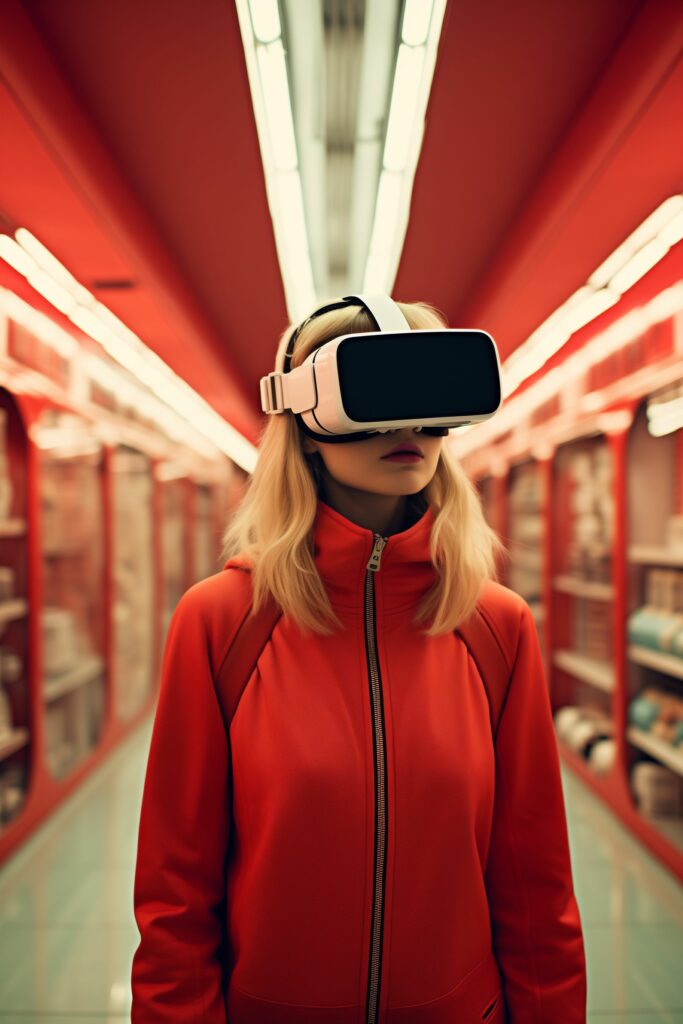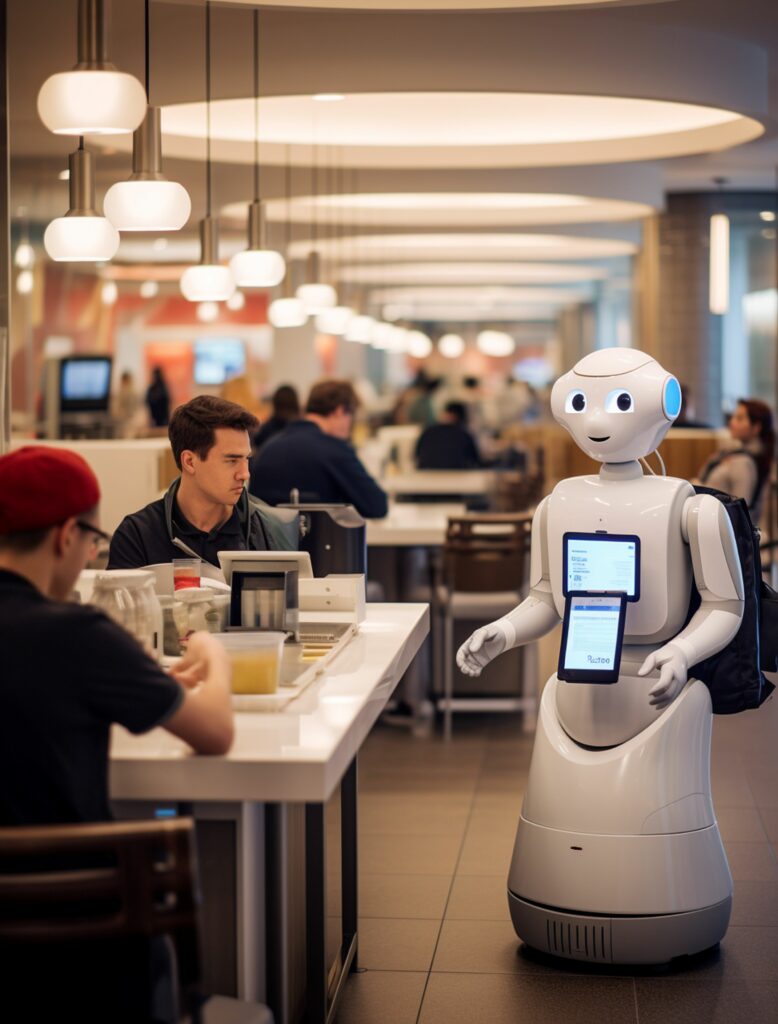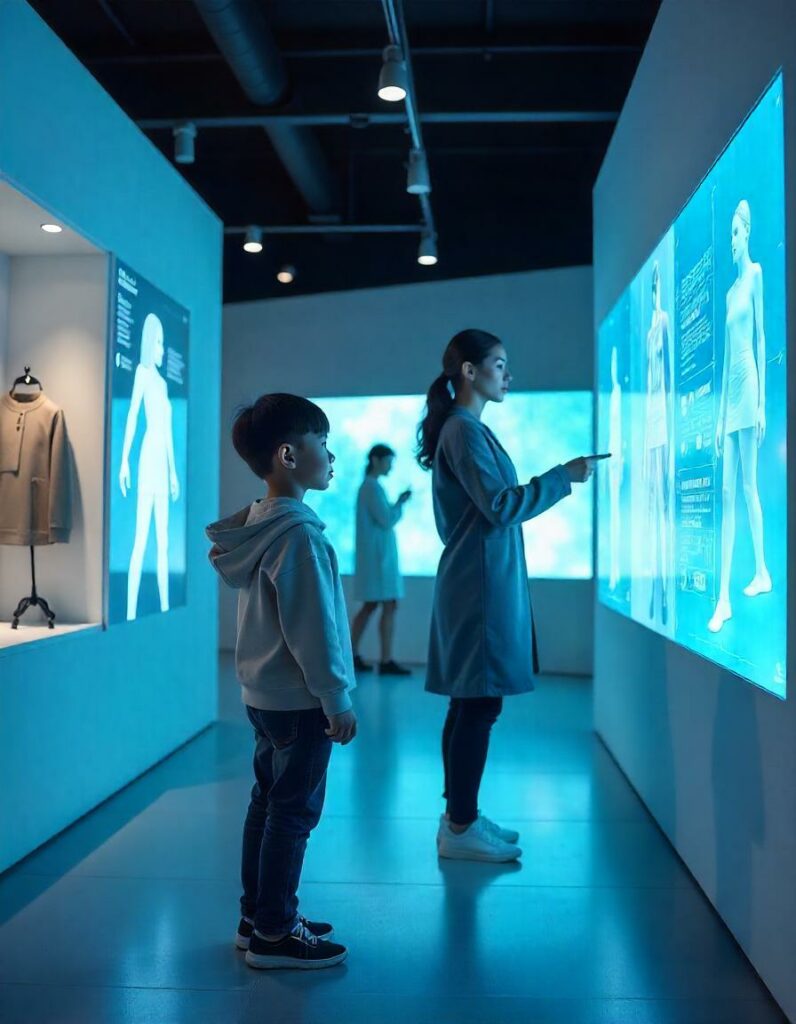As committee members, Revo recently asked us for our opinions on what the industry will look like in 2025.
That question got us thinking about our sector’s exciting opportunities and challenges. From the evolution of retail experiences to the growing importance of sustainability and technology, 2025 promises transformative changes that will shape how we design, market and engage with places.
Here are our top 7 predictions for 2025 – key trends we believe will define the future of retail, destination marketing, and placemaking.
- Seamless Integration of Physical and Digital Experiences
Phygital retail experiences will continue to dominate as consumers expect more seamless transitions between online and in-person shopping. Augmented Reality (AR) and Virtual Reality (VR) will enhance destination marketing by allowing consumers to explore places virtually before visiting.
AI-driven personalisation will make retail and destination marketing hyper-targeted, offering unique experiences tailored to individual preferences. - Community-Centric Placemaking
Placemaking will prioritise community-building and authenticity, with a shift from generic commercial spaces to vibrant, culturally rich environments. Mixed-use developments will integrate retail, entertainment, workspaces, and green areas.
Sustainability and social equity will be core. Places that engage communities with eco-conscious designs and inclusive practices will attract more visitors and long-term residents. - Sustainability as a Non-Negotiable
Consumers are demanding sustainable practices from businesses, influencing the design of retail spaces and marketing strategies. Green certifications and initiatives like carbon-neutral spaces will become standard in placemaking projects.
Destination marketers will highlight sustainable travel options and eco-friendly tourism experiences to attract environmentally conscious travellers. - Experiential and Purpose-Driven Engagement
Experiences over products will define retail and destinations. Pop-ups, immersive art installations, and curated local events will draw visitors, creating memorable moments that connect emotionally with audiences.
Placemaking will focus on creating destinations where visitors and locals feel a sense of purpose and belonging. Storytelling about the history and culture of a place will be central to attracting visitors. - Technology as a Key Driver
The use of AI, IoT, and data analytics will revolutionise how retail and destinations operate. From smart wayfinding in cities to predictive analytics for retail trends, technology will enhance visitor experiences.
Metaverse integration could emerge, where retail stores and destinations maintain digital twins for shopping, exploration, or promotional events. - Evolving Consumer Behaviours
Retailers and destination marketers will need to adapt to Gen Z and Gen Alpha, who value digital fluency, authenticity, and ethical practices.
Travellers in 2025 will seek micro-adventures and hyper-local experiences, driving demand for less crowded, off-the-beaten-path destinations. - Health, Wellness, and Safety Prioritised
Wellness tourism and health-conscious design in retail and placemaking will rise. Incorporating biophilic design, open-air markets, and wellness centres will create spaces that feel safe and restorative. Contactless technologies and health-focused initiatives, like improved ventilation and touch-free payment systems, will remain essential.



